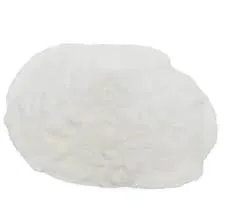
Th11 . 06, 2024 18:15 Back to list
Hydroxyethyl Cellulose Providers for Various Industry Applications and High-Quality Products
The Role of Hydroxyethyl Cellulose Suppliers in the Chemical Industry
Hydroxyethyl cellulose (HEC) is a versatile, water-soluble polymer derived from cellulose, a natural polymer obtained from the cell walls of plants. It has gained significant popularity in various industries due to its unique properties, including thickening, emulsifying, and film-forming capabilities. As a result, the demand for hydroxyethyl cellulose suppliers has been on the rise, especially in sectors such as pharmaceuticals, cosmetics, food, and construction.
What is Hydroxyethyl Cellulose?
HEC is produced through the etherification of cellulose with ethylene oxide. This chemical modification introduces hydroxyethyl groups into the cellulose molecule, enhancing its solubility in water and providing it with unique rheological properties. HEC is widely used as a thickening agent, stabilizer, and binder, making it an invaluable ingredient in many formulations.
In the pharmaceutical industry, HEC serves as a reliable excipient in drug formulations. It enhances the viscosity of solutions, thereby improving the stability of active pharmaceutical ingredients (APIs) and controlling the release rates of medications. In cosmetics, HEC is often found in lotions, creams, and shampoos, where it not only thickens the product but also contributes to a smooth application and pleasant feel on the skin.
Importance of Hydroxyethyl Cellulose Suppliers
As demand for HEC grows, the role of suppliers becomes increasingly important. High-quality suppliers ensure that manufacturers receive consistent and reliable products that meet stringent regulatory standards. The selection of a qualified HEC supplier can directly impact the performance and safety of the end products.
1. Quality Assurance The quality of hydroxyethyl cellulose can vary significantly depending on the manufacturing process and raw materials used. Reliable suppliers invest in quality control measures to ensure their products meet industry standards. This includes comprehensive testing for purity, viscosity, and pH levels, which are critical for each application.
hydroxyethyl cellulose suppliers

2. Customization Different applications may require specific grades or characteristics of HEC. Established suppliers often offer customization options, allowing manufacturers to choose additives or modify the viscosity to suit their specific needs. This flexibility can enhance product performance and ultimately lead to a competitive advantage in the market.
3. Technical Support Knowledgeable suppliers provide valuable technical support, helping manufacturers optimize formulations and troubleshoot any issues that may arise during production. This collaboration can lead to improved product formulations and increased efficiency in the manufacturing process.
4. Sustainable Sourcing With growing awareness of environmental issues, many manufacturers seek suppliers who adhere to sustainable practices. Suppliers that source raw materials responsibly and apply environmentally friendly processes in their manufacturing are more likely to be favored by conscientious businesses.
The Market Landscape
As of 2023, the global hydroxyethyl cellulose market is experiencing robust growth. This growth is driven by expanding applications in the construction industry, particularly in the formulation of adhesives, paints, and coatings. HEC's exceptional thickening properties make it an essential ingredient in these formulations, improving texture and application ease.
In addition, the demand for HEC in the pharmaceutical and cosmetic sectors continues to rise. New product developments and innovations in these areas are pushing suppliers to meet diverse and evolving requirements. This dynamic landscape presents both challenges and opportunities for HEC suppliers, as they must constantly adapt to changing market demands.
Conclusion
In conclusion, hydroxyethyl cellulose suppliers are crucial players in various industries, providing essential resources that enhance product quality and performance. The emphasis on quality assurance, customization, and technical support ensures that manufacturers can harness the full potential of HEC in their formulations. As the market continues to grow and evolve, the importance of selecting the right hydroxyethyl cellulose supplier cannot be overstated. With the right partnership, businesses can succeed in producing high-quality products that meet the demands of consumers while navigating the complexities of regulatory standards and market competition.
-
The Widespread Application of Redispersible Powder in Construction and Building Materials
NewsMay.16,2025
-
The Widespread Application of Hpmc in the Detergent Industry
NewsMay.16,2025
-
The Main Applications of Hydroxyethyl Cellulose in Paints and Coatings
NewsMay.16,2025
-
Mortar Bonding Agent: the Key to Enhancing the Adhesion Between New and Old Mortar Layers and Between Mortar and Different Substrates
NewsMay.16,2025
-
HPMC: Application as a thickener and excipient
NewsMay.16,2025
-
Hec Cellulose Cellulose: Multi functional dispersants and high-efficiency thickeners
NewsMay.16,2025







